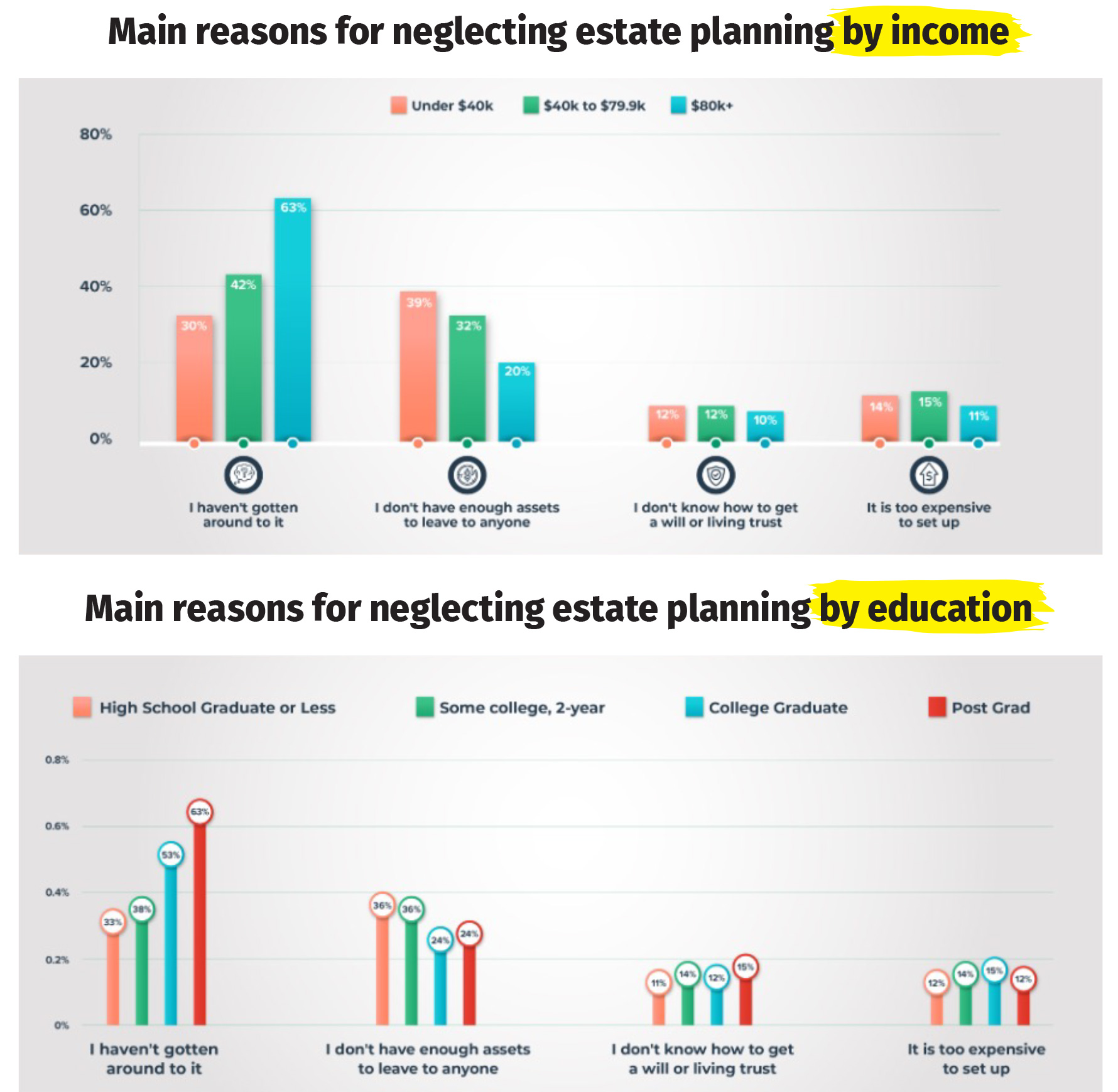Helping clients navigate difficult estate-planning conversations

When it comes to estate planning, there is a common misconception that estate plans are only for older generations. In actuality, though, any age group can benefit from one, and yet few are participating in the planning process.
The Caring.com 2022 Wills and Estate Planning Study revealed that only 45% of Americans ages 55 and older have estate-planning documents in place. This statistic is even lower among 18- to 34-year-olds, with only 24% reporting having an estate plan.
Estate planning goes far beyond finances and tangible assets. Rather, it is a very personal process that helps ensure an individual’s legacy is passed down to their loved ones and that family members are protected in the event of the individual’s illness or death.
Below are some best practices for financial advisors to consider when approaching estate planning with their clients.
Initiate the conversation during the discovery meeting
The first step a financial advisor should take is to ask the client whether they have a will or trust in place. If the answer is no, this is an opportunity to introduce estate planning as an important step toward creating a long-term financial strategy.
During an introductory meeting, it is also important to stress the benefits of an estate plan, such as peace of mind knowing a family’s financial future is secure. If the client is still reluctant, it is the advisor’s responsibility to continue initiating these conversations and emphasizing the importance of estate planning throughout the client’s financial journey.
Reframe the conversation
The process of writing a will can be uncomfortable, but with the right approach, it doesn’t have to be. Rather than leading the conversation with an emphasis on mortality and assets, an advisor can position estate planning as an opportunity for a client to pass down their legacy to loved ones. Once the client identifies what they want their legacy to look like, they’ll likely be more open to the conversation
Help the client navigate conversations with family
An essential next step is discussing with the client what stage of the estate-planning process they would like to involve their family in. This differs for each person, depending on their age and stage of life, with some clients preferring to include their family as early as possible and others preferring to wait. Regardless of when these conversations occur, the client may feel anxious at the thought of having them.
Advisors can help by offering to write an email informing the client’s family members of what to expect from the process. Alternatively, if the client wants to address their family themselves, an advisor can help soften the landscape by providing sample language or scripts. As a best practice, an advisor should encourage the client to introduce this conversation gently by sharing the values they’d like passed down and the legacy they want to leave behind.
Get comfortable having uncomfortable conversations
Financial advisors may know the importance of estate planning, but that doesn’t necessarily make it any easier to have the difficult conversations that must occur during estate planning. For instance, it is the advisor’s responsibility to talk through different options for passing down assets, even if a client has no immediate beneficiaries. In this instance, an advisor should introduce creative options such as spending more assets during his or the client’s life span or tax-efficient charitable giving strategies. Clients will be more relaxed and willing to participate in the discussion when they feel supported by their advisor.
Team up with an estate lawyer
Lawyers are an essential component of the estate-planning process. Therefore, it’s vital for financial advisors to have working relationships with lawyers in the field. Although an advisor may have a general understanding of the legal components required in estate planning, this area of expertise is uniquely complex and requires specific training and education.
If the client does not already have a lawyer, the advisor should come prepared with a list of trusted lawyers to recommend. With permission from the client, an advisor can offer to write an introduction email with a detailed list of this individual’s goals and assets. This email drastically speeds up the planning process by getting the lawyer acquainted with the client prior to the discovery meeting.
Don’t let emotions outweigh objectivity
Objectivity should always be a top priority for an advisor, but it is especially important when discussing sensitive topics such as illness and death. In the instance of terminal illness, for example, it can be tempting to let emotions impact the decision-making process. However, it is vital to keep the client’s best interests in mind by providing direction on how to approach end-of-life planning and how to set the client’s family up for financial security.
Financial advisors are ultimately responsible for holding their clients accountable to create an estate plan before it’s too late. Once an estate plan is in place, advisors should help their client review and update their existing estate plan. Changes in the law, especially estate tax changes at the federal level, and significant life events may make it necessary to update the plan. When an advisor holds a client accountable, it helps ensure their legacy will be carried out smoothly.
Ben Beshear is a Cincinnati-based CEO and private wealth advisor with LiveWell Capital, a Northwestern Mutual Private Client Group. Ben may be contacted at [email protected].






The how and when of texting clients
Does pessimism really suppress annuity sales?
Advisor News
- Bill that could expand access to annuities headed to the House
- Private equity, crypto and the risks retirees can’t ignore
- Will Trump accounts lead to a financial boon? Experts differ on impact
- Helping clients up the impact of their charitable giving with a DAF
- 3 tax planning strategies under One Big Beautiful Bill
More Advisor NewsAnnuity News
- An Application for the Trademark “EMPOWER INVESTMENTS” Has Been Filed by Great-West Life & Annuity Insurance Company: Great-West Life & Annuity Insurance Company
- Bill that could expand access to annuities headed to the House
- LTC annuities and minimizing opportunity cost
- Venerable Announces Head of Flow Reinsurance
- 3 tax planning strategies under One Big Beautiful Bill
More Annuity NewsHealth/Employee Benefits News
Life Insurance News
- On the Move: Dec. 4, 2025
- Judge approves PHL Variable plan; could reduce benefits by up to $4.1B
- Seritage Growth Properties Makes $20 Million Loan Prepayment
- AM Best Revises Outlooks to Negative for Kansas City Life Insurance Company; Downgrades Credit Ratings of Grange Life Insurance Company; Revises Issuer Credit Rating Outlook to Negative for Old American Insurance Company
- AM Best Affirms Credit Ratings of Bao Minh Insurance Corporation
More Life Insurance News